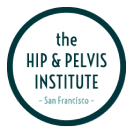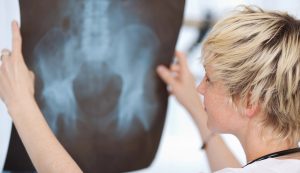Most discussions about hip surgery focus on the procedure itself, but nutrition plays an equally critical role in recovery. The foods you eat can influence tissue repair, inflammation, and even how well your bones and muscles respond to physical therapy. Subtle nutrient deficiencies are often overlooked yet can slow healing or increase complications. Understanding how to optimize your diet after hip surgery gives you a tangible way to actively support recovery and long-term joint health.
How Nutrition Impacts Hip Surgery Recovery
Nutrition affects hip surgery recovery in ways that go far beyond general health. Proteins provide the building blocks for repairing muscles, tendons, and connective tissue around the joint, while certain vitamins and minerals support bone remodeling and wound healing. Omega-3 fatty acids and antioxidants help control inflammation, which can otherwise slow recovery and increase pain. Even subtle deficiencies—like low vitamin D or insufficient zinc—can prolong swelling, reduce immune function, and limit mobility gains during rehabilitation. By intentionally including nutrient-dense foods, patients can enhance tissue repair, reduce post-operative complications, and improve energy levels, allowing them to participate more effectively in physical therapy and regain hip function faster.
Foods to Aid Hip Surgery Recovery
Choosing the right foods after hip surgery can make the body’s repair process faster and smoother. Beyond general healthy eating, certain foods play a targeted role in tissue repair, bone strength, and energy balance:
- Protein-rich foods (salmon, chicken, lentils, Greek yogurt) – Protein supports muscle rebuilding around the hip joint, which is especially important for stability and strength during rehabilitation.
- Omega-3 sources (sardines, chia seeds, walnuts) – These help reduce inflammation that can slow recovery and contribute to joint stiffness.
- Leafy greens (spinach, kale, Swiss chard) – High in vitamin K and calcium, they promote bone health and support blood clotting, which lowers surgical risks.
- Colorful fruits (berries, oranges, kiwi) – Packed with vitamin C, they encourage collagen formation, essential for repairing surgical wounds and connective tissues.
- Whole grains (quinoa, oats, brown rice) – Provide steady energy for physical therapy sessions and prevent fatigue during recovery.
- Nuts and seeds (almonds, pumpkin seeds, sunflower seeds) – Deliver magnesium and zinc, minerals critical for bone repair and immune defense.
- Fermented foods (kefir, sauerkraut, kimchi) – Support gut health, which helps the body better absorb nutrients needed for healing.
- Hydrating foods (cucumbers, watermelon, broth-based soups) – Adequate hydration reduces swelling and improves circulation to the healing hip area.
These foods do more than fill your plate—they directly influence how well the body responds to surgery and recovery demands.
Post Hip Surgery Meal Planning
Meal planning after hip surgery isn’t just about convenience—it’s about making sure every plate works toward healing. Planning balanced meals ahead of time reduces stress during recovery and ensures the body consistently gets the nutrients it needs. A smart plan includes lean proteins for muscle repair, whole grains for energy, and colorful produce for antioxidants. Preparing meals in batches or freezing portions can help when mobility is limited. Including easy-to-digest options, like soups or smoothies, supports patients who may feel fatigued or have a reduced appetite in the early recovery days.
Nutritional Support Strategies for Different Recovery Stages
Nutrition needs shift as the body moves through different stages of hip surgery recovery. In the immediate post-surgery phase, the focus is on hydration, easily digestible proteins, and anti-inflammatory foods to reduce swelling. During the early healing stage, nutrients like vitamin C and zinc become critical for tissue repair, while adequate calories prevent muscle loss.
As patients transition into rehabilitation and physical therapy, protein intake should be increased to support muscle rebuilding, and calcium with vitamin D helps strengthen bones under new stress. In the long-term recovery phase, maintaining a nutrient-dense diet rich in whole grains, healthy fats, and antioxidants supports sustained energy, prevents weight gain from reduced activity, and protects overall joint health.
Common Mistakes and Myths About Diet After Hip Surgery
Even well-meaning patients often follow advice that may slow recovery or create setbacks. Understanding these common mistakes and myths helps keep healing on track:
- “I should cut calories to avoid weight gain while inactive.”
While activity levels drop, the body’s demand for nutrients actually increases. Cutting too many calories deprives tissues of protein, vitamins, and minerals needed for repair. - “Supplements alone are enough for recovery.”
Pills and powders can help, but they don’t replace the complex balance of nutrients found in whole foods. Real meals provide fiber, phytonutrients, and energy that supplements can’t match. - “All protein sources are equal.”
Processed meats or excess red meat may increase inflammation. Lean poultry, fish, eggs, beans, and lentils provide cleaner, more effective protein for healing. - “High-fat comfort foods speed up recovery.”
Heavy fried foods or sugary snacks may feel satisfying, but they increase inflammation and can make digestion sluggish, which is already a concern after surgery. - “Hydration doesn’t matter as much when I’m resting.”
Dehydration slows circulation, which reduces oxygen delivery to healing tissues. Adequate fluids are essential, especially when medications or reduced mobility affect digestion. - “Dairy should be avoided to reduce inflammation.”
While some people are sensitive, low-fat dairy or fortified alternatives often support bone strength through calcium and vitamin D—important in hip recovery. - “I’ll get strong again once physical therapy starts.”
Nutrition builds the foundation for therapy to work. Without enough energy and protein, progress in strength and mobility is slower and harder.
Recognizing these myths is just as important as knowing what to eat. Recovery after hip surgery isn’t about shortcuts or extremes—it’s about balance. By focusing on whole foods, proper hydration, and steady nourishment, patients create the right environment for their bodies to heal and regain strength more effectively.
Conclusion
Nutrition is one of the most overlooked tools for healing after hip surgery, yet it can make the difference between a slow recovery and a strong return to mobility. By focusing on the right foods, planning meals thoughtfully, and avoiding common diet pitfalls, patients give their bodies the resources they need to repair and rebuild. At SFHips, we believe recovery is more than surgery—it’s about supporting every part of the healing process. Visit us online or call (415) 530-5330 to schedule an appointment and learn how personalized care can guide your recovery.








